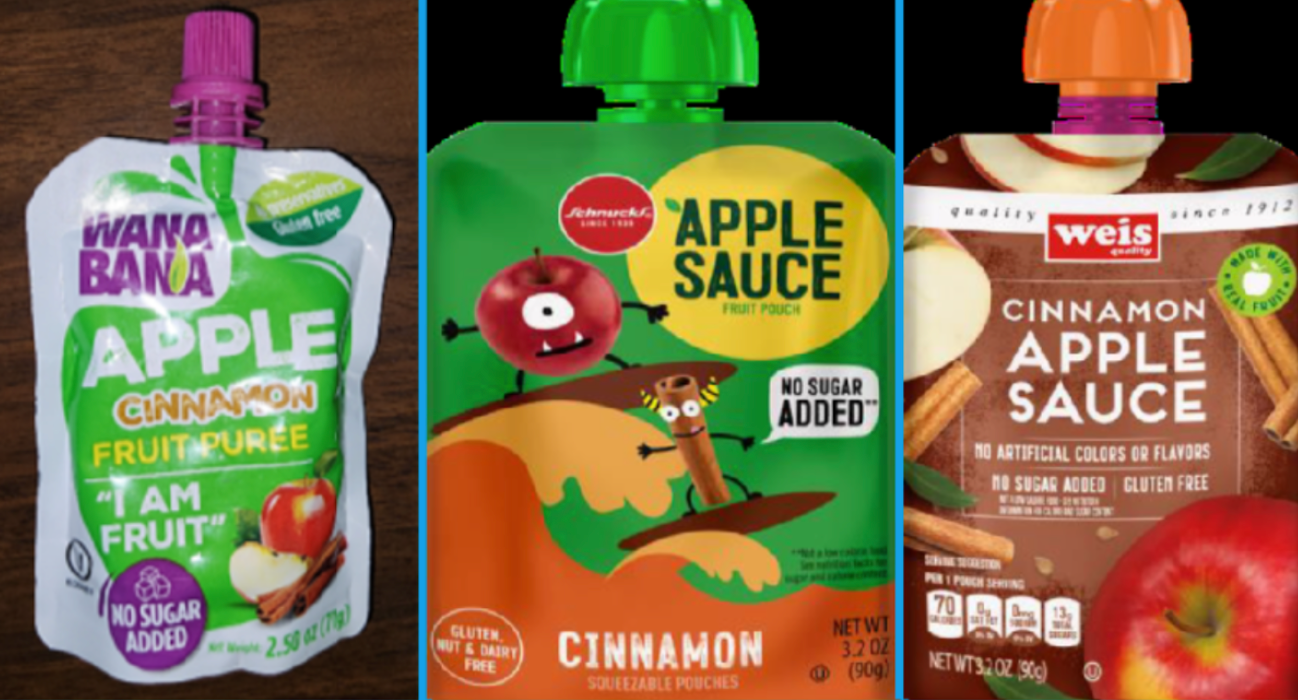BARRIO (Food Safety News) – The company behind an outbreak of high lead levels in children who ate certain cinnamon applesauce has named the supplier of the cinnamon.
Austrofood, along with Wanabana USA, has named Negocios Asociados Mayoristas S.A., operating as Negasmart, a third-party distribution company located in Ecuador, as the cinnamon supplier.
Based on its investigation, the U.S. Food and Drug Administration had already concluded that the cinnamon in certain applesauce products was the source of the lead. After conducting its investigation, Austrofood has come to the same conclusion. FDA testing has shown the implicated applesauce has 200 times the acceptable lead level.
“The FDA is continuing to work with Ecuadorian authorities to investigate the source of the contamination and to determine if the cinnamon in the recalled products was used in other products or distributed as a raw ingredient to other countries. FDA has confirmed that Negasmart does not import cinnamon directly into the U.S.,” according to an update from the FDA.
As of Nov. 30, 57 children aged less than 1 to 5 years old have been confirmed with high levels of lead in their blood after eating cinnamon applesauce. The children are spread across 22 states. Three brands of cinnamon applesauce pouches have been recalled. They are Wanabana, sold in stores nationwide and on the internet, and Schnucks and Weis store brands sold at those regional grocery chains. The Schnucks cinnamon applesauce is sold individually and in a variety of packs.
“At this time, the FDA has no indication that this issue extends beyond these recalled products, but to further protect public health, the FDA is screening incoming shipments of cinnamon from multiple countries for lead contamination. As of Nov. 30, 2023, no screening results have tested positive for higher levels of lead,” according to the FDA update.
“Separately, Austrofood CIA LDA’s apple cinnamon fruit puree pouch products exported to the U.S. were added to Import Alert 99-42, detention without physical examination of foods due to heavy metal (toxic element) contamination.”
Lead is toxic to humans and can affect people of any age or health status, but children are particularly susceptible to lead toxicity. Lead poisoning can result in several long-term problems, including developmental disorders and brain damage.
“These products have a long shelf life. Consumers should check their homes and discard these products. Most children have no obvious immediate symptoms of lead exposure,” according to the FDA’s alert. “If there’s suspicion that a child may have been exposed to lead, parents should talk to their child’s healthcare provider about getting a blood test.”
Short-term exposure to lead can result in the following symptoms: headache, abdominal pain/colic, vomiting, and anemia. Longer-term exposure could result in additional symptoms: irritability, lethargy, fatigue, muscle aches or muscle prickling/burning, constipation, difficulty concentrating/muscular weakness, tremors, and weight loss.






0 Comments